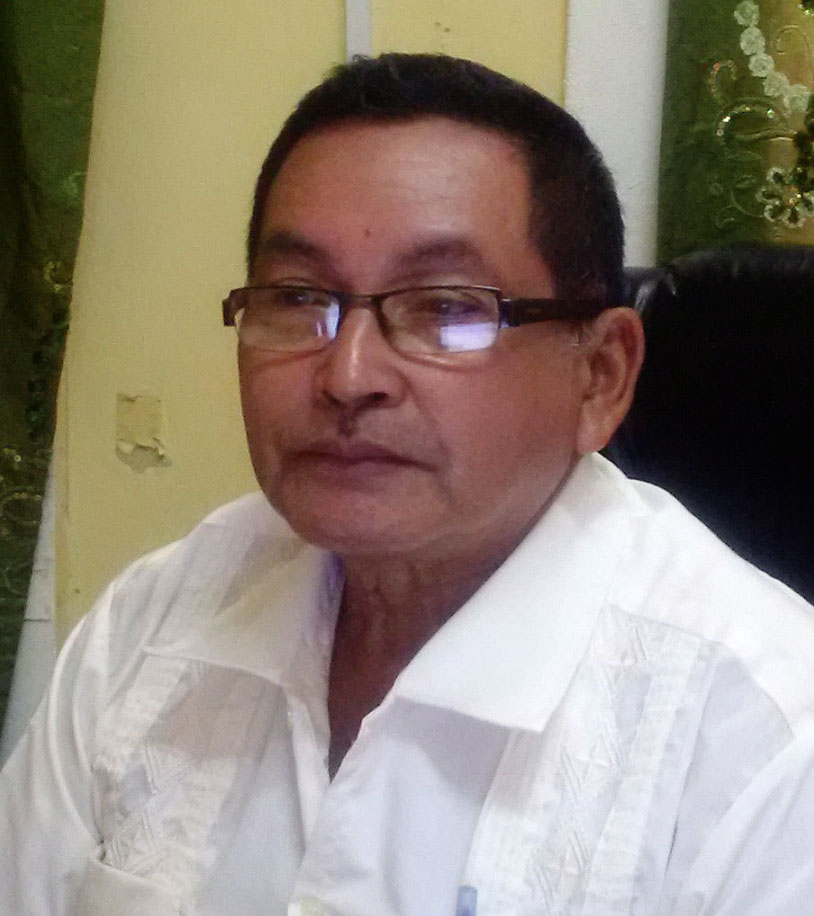Suspicions that one of the COVID-19 variants from Brazil is circulating in Guyana is increasing especially considering that a busload of Brazilians who entered the country illegally were recently intercepted in Linden.
Speaking with Stabroek News yesterday, Region Nine Chairman Bryan Allicock said that while there is yet to be official confirmation that a COVID-19 variant is in the country it is becoming clear that there might a variant from Brazil circulating in Region Nine, if not the entire country. He stated that initial suspicions that a variant might be in the region had stemmed from clinical observations which indicated that the COVID-19 was more transmissible than before and unlike the last outbreak, many persons were experiencing moderate to severe symptoms of the virus.
He added that the recent interception of at least a dozen Brazilian nationals in Linden shows that persons have been traversing back and forth between Guyana and Brazil undetected. He said the passengers entered Guyana illegally and with the authorities unaware of their presence in the country, if infected with one of the new strains of COVID-19, this means that the virus could already be manifesting within residents of Region Nine.
Guyana is yet to confirm whether a COVID-19 variant is circulating in the country but many officials including Health Minister Dr. Frank Anthony suggested that there is a new strain of the virus in the country and also based their determination on clinical observations.
However, the minister acknowledged that there is no way to confirm whether a variant is in Guyana as the healthcare system is not equipped with the capacity to conduct gene sequencing but assured that they have been putting systems in place to send samples to CARPHA to be tested. However, to date, this is yet to be done.
The Pan American Health Organisation (PAHO) on Wednesday said that nearly 40% of all global deaths from COVID-19 reported last week happened in the Americas, and nearly 80% of the region’s intensive care units are filled with COVID-19 patients.
“This is a clear sign that transmission is far from being controlled in our region, even as countries like the United States and Brazil are reporting reductions in cases,” PAHO Director Carissa Etienne told a webcast news conference. Meanwhile, Incident Manager Sylvain Aldighieri said that India’s B.1.617 predominant coronavirus variant has been detected in six countries of the Americas and PAHO is worried that it is highly transmissible.
As of Wednesday more than 140 million people have been fully vaccinated against COVID in the Americas. “But until we have enough vaccines to protect everyone, our health systems and the patients that rely on them remain in danger,” Etienne warned that across the PAHO region, nearly 80% of intensive care units are filled with COVID-19 patients and the numbers are even more dire in some places.
However, PAHO said while the number of cases are falling in Brazil, COVID-19 cases are surging in the areas of Guyana and Bolivia that border Brazil.
Deep South Rupununi
Meanwhile, according to Allicock, the number of cases continues to rise rapidly in the Deep South Rupununi and authorities are hoping to ramp up sensitisation exercises in the Region especially in far-flung indigenous communities where vaccination against the virus is being met with resistance.
He disclosed that although they are currently battling an outbreak, residents of Masakenari are refusing to get vaccinated. So far only 16 out of nearly 300 residents have been vaccinated from the community although a medical team had travelled out to the community specifically for that purpose. Convincing the residents to get vaccinated has not been made easier with both the Toshao and Deputy Toshao infected with the virus and currently isolated in Lethem, Allicock informed. However, once they are discharged, he hopes that by having them vaccinated, residents will not be so reluctant to be inoculated. Twenty-nine persons have so far tested positive for COVID-19 in Masakenari and one person has died.
As it is now, many have retreated to their farms in the forest to avoiding contracting the virus and getting vaccinated, Allicock has said. In spite of that, he said Region Nine residents’ response to the vaccine has been good with more that 32% having already received their first shot of the COVID-19 vaccine.
However, in the Deep South Rupununi, vaccine storage is major issue. Toshao and Chairman of the South Rupununi District Council Michael Thomas said although many are showing up to get vaccinated at the hospital there is a shortage of vaccines as they are unable to properly store the vaccines and have to rely on ice-boxes to keep the vaccines at the right temperature but even this method of storage doesn’t last long.
Thomas said that authorities are currently working on a solution to address the issue and have asked for the number of persons in the area who are yet to be vaccinated. He said in Aishalton more than 400 persons have already received their first shot of a COVID-19 vaccine.
Meanwhile, the Toshao announced that Aishalton has lifted most of the restrictions that were imposed when the village recorded its first COVID-19 case now that the community only has 7 active cases. However, testing is ongoing in the village and across Deep South.
He also disclosed that Maruranau, Parabara and Karaudarnau, all communities in the Deep South are still battling their own outbreaks within their community. He said with Toshao Elections recently held in the area, there seems to be an increase in COVID-19 cases in these communities and expressed fears that this may be the case in the entire Deep South Rupununi.
The Ministry of Amerindian Affairs, Ministry of Regional Development and Local Government, and Conservation International-Guyana, have donated food and cleaning supplies to Masakenari and other affected communities, Allicock informed.





